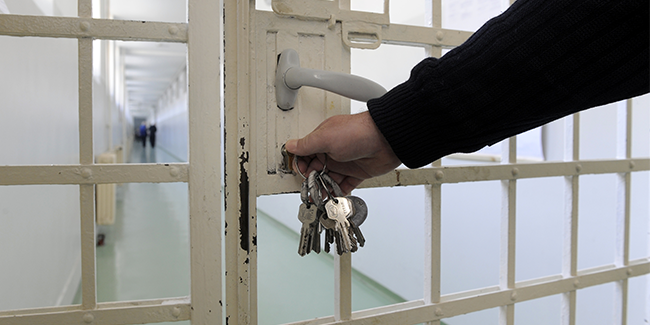A new inquiry will examine whether prisoners in Wales should have the right to vote in Welsh elections.

The Equality, Local Government and Communities Committee is looking at the issue as the National Assembly for Wales Commission prepares to introduce legislation next year which could change who is eligible to vote.
Under UK law prisoners serving custodial sentences are banned from voting. But a landmark ruling in 2005 by the European Court of Human Rights found such a ban to be in breach of international human rights law. There are currently around 4,700 inmates in Welsh prisons.
In order to comply with the ruling, the UK Government announced plans to give prisoners released on temporary licence or on home detention curfew, the right to vote. The European Court of Human Rights is not part of the European Union, meaning the UK would not be exempt following Brexit.
Since April of this year, the National Assembly for Wales has had powers over its own election system.
Following the two consultations on electoral reform for local elections and Assembly elections, the Llywydd wrote to the Chair on 6 September and invited this Committee to explore the issue, and come to a cross-party view on whether voting rights should be extended to prisoners.
“Giving prisoners voting rights is a contentious issue and I am sure we will be receiving polarised views on this,” said John Griffiths AM, Chair of the Equality, Local Government and Communities Committee.
“It is important that we hear from and consider all sides of this issue as part of our work so I would encourage anyone with an interest in this inquiry to take part in our consultation.”
The Committee will be asking a number of questions as part of its inquiry, including:
Should prisoners have the right to vote?
Should a prisoner’s right to vote depend upon the length of their sentence, the type of offence committed and/or their expected release date?
If prisoners were given the right to vote, what method should be used? (for example, postal vote, electronically, mobile booths in the prison, or another method?)
Should special considerations apply to young offenders in custody if the voting age is lowered to 16 and 17 year olds generally?
If prisoners were given the right to vote, at what address should they be registered to vote?
The Committee is keen to hear the opinions and ideas of anyone with an interest in this issue so it has set up an online discussion where people can share their thoughts.
People are also still able to submit evidence in writing or via email by visiting the Committee pages on the National Assembly website.
The closing date for the consultation will be 7 January.

